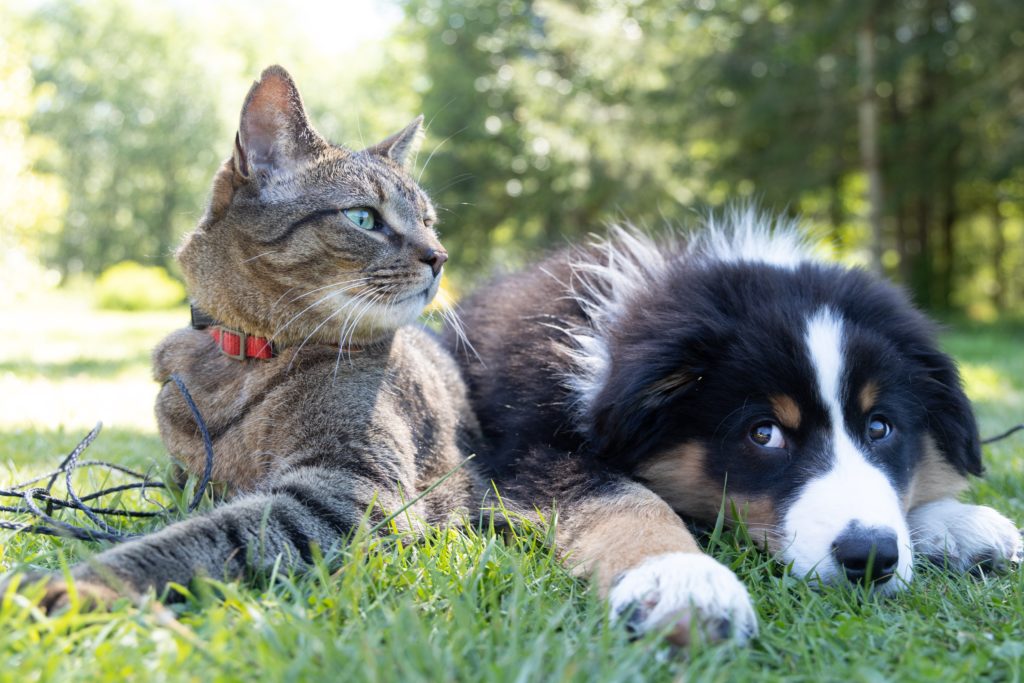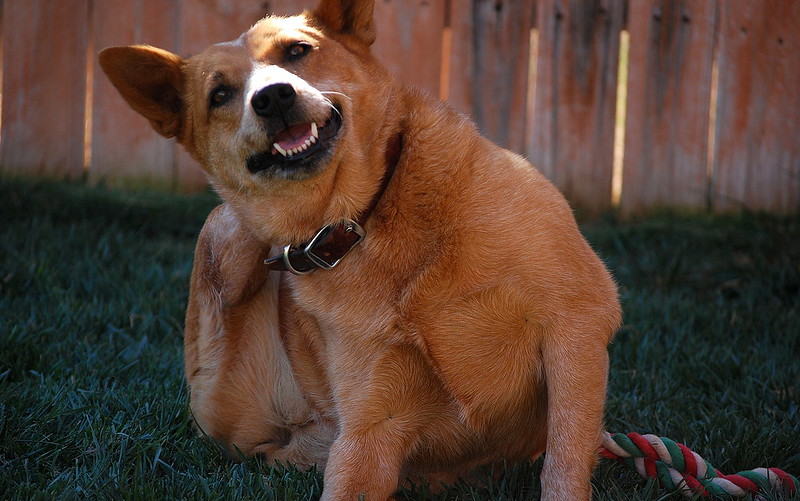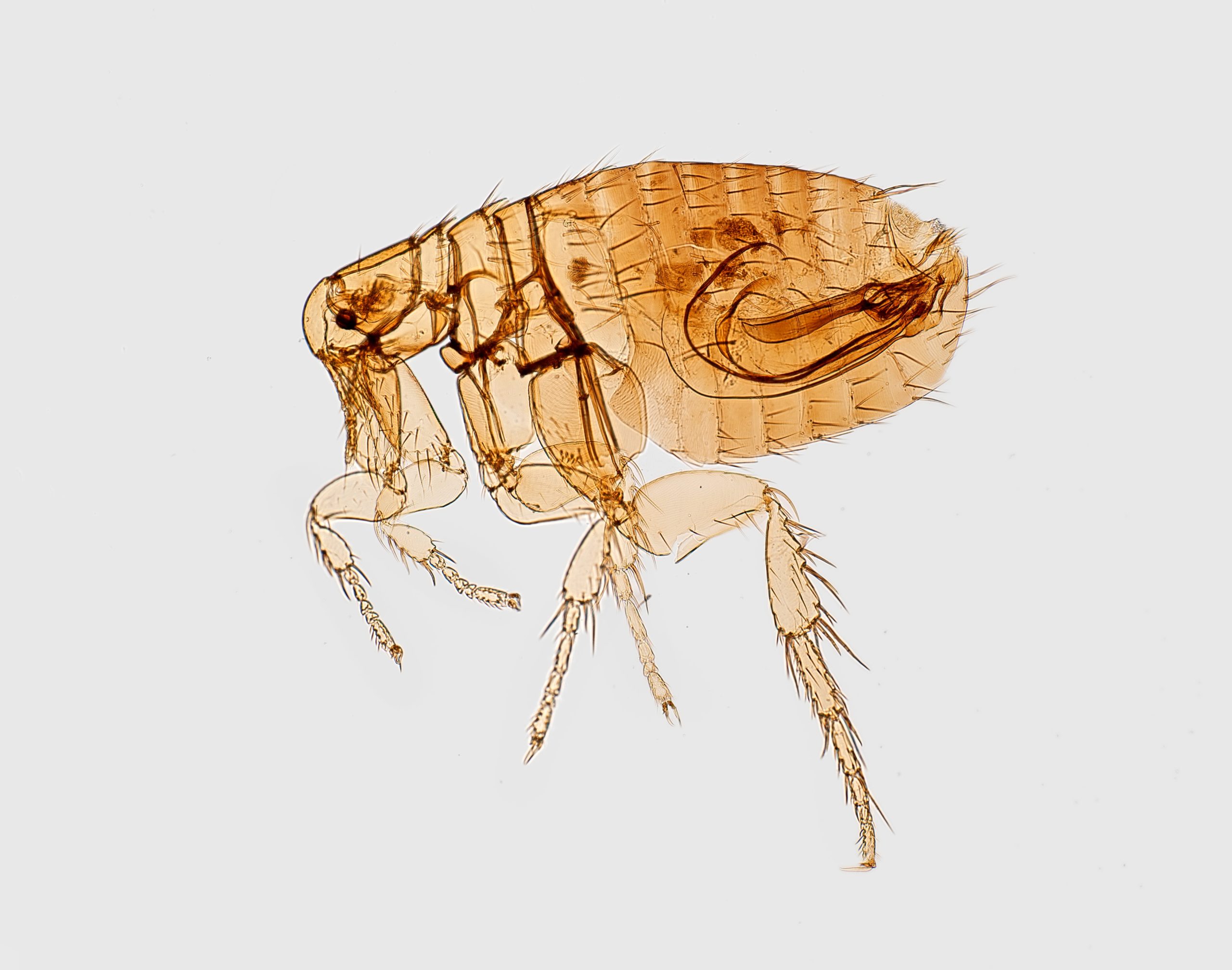Fleas in Your Follicles: Can Fleas Live in Human Hair?
Do fleas live in human hair? The short answer is no... not usually. Find out about any exceptions to this rule as well as learn why fleas might bite you even though they're not living on you.

Do fleas live in human hair? The short answer is no... not usually. Find out about any exceptions to this rule as well as learn why fleas might bite you even though they're not living on you.

Fleas are tiny, blood-sucking pests, and if you were to take a look at a cat or dog infested with these critters, you’d see that they’re uncomfortable and itchy. One belief that many people have is that fleas can live in human hair. Is that really the case? The answer is no, fleas don’t live on humans… at least not usually.
Let’s explore the topic a bit more:
Read on to learn more about these pests.

Fleas live on the blood of warm-blooded animals, and they will live on mammals or birds. Their bodes are designed to be able to maneuver easily through thick fur or feathers, so they can stay protected and undetected. They feed on the blood of their hosts, and they get to the blood be biting. The bites can cause itching and sometimes allergic reactions.
So, if you have a dog, cat, or pet bird, they can get fleas. Since fleas also live on animals that probably trek through your yard and local parks, such as rodents, raccoons, and rabbits, that’s likely where your dog or cat is most likely to get fleas.
Fleas don’t like living on humans. Our hair isn’t thick enough to provide good insulation and protection. Also, we wash our hair frequently, so our hair is usually too slippery for them to get a good hold on. The parts of our bodies without thick hair just aren’t conducive for fleas to live on; there’s nowhere to hide, and we’d see them immediately.
Fleas have definite preferences as to the types of animals they infest, and those animals are generally fur-covered mammals and sometimes birds.
While fleas don’t typically live on humans, it’s possible in a few specific circumstances for them to make a home on a human head. If people live in very crowded, unsanitary conditions, they could conceivably experience having fleas living in their hair or on their bodies.
More often, humans will have other types of mites or head lice that they might mistake for fleas. While head lice and fleas both bite, they’re two different creatures.

Humans will get bitten by fleas if there are fleas in the environment. Fleas will live on household pets, and they can also temporarily live in carpeting, bedding, and upholstered furniture. When you walk through an infested carpet, fleas will jump up and bite you. Most of these bites happen on the ankles and feet.
Fleas will also leave your pet temporarily to bite you if you’re nearby. They might jump onto your body to bite, but they won’t continue living there; they’ll go back to your pet or onto the floor or furniture when they’re done eating.
While fleas can’t live on your body, they can certainly cause a lot of discomfort. Also, they can and will continue to live on your pets and will cause them itching and maybe allergic reactions.
The best way to deal with this is to prevent a flea infestation in the first place. First, talk to your vet about ways to keep your pets flea-free. This might entail medication or a gel that you apply to their necks each month. Very young animals can’t use these products, so you may need to resort to bathing them regularly.
Keeping your home clean can also help. Vacuum and wash your pet’s bedding regularly.
Outdoors, keep the grass mowed and if you can take steps to prevent bunnies and raccoons from entering (with a fence, perhaps), do that.
The most important thing to do is address any flea infestation promptly. If self-help measures don’t work, call in the professionals to take care of the problem. The last thing you want is a full-blown infestation, which can happen in a matter of weeks.
Featured image by Ali Pazani / Unplash
Article image by Andrew S / Unplash
Article image by Christian Erfurt / Unplash

Fleas are a common nuisance that pet owners often face. When a flea infestation strikes, it can feel like an uphill battle requiring a lot of hands-on intervention. You might wonder whether fleas will go away on their own. Unfortunately, they will not, and we’re going to delve into why.

The bad news is that you have fleas in your home. The good news is that fleas are generally not too hard to get rid of on your own. But how long does it take to get rid of fleas?

Fleas are unwelcome guests that can turn your home into an itchy, uncomfortable problem. We’ve got tips to help you get rid of fleas fast.